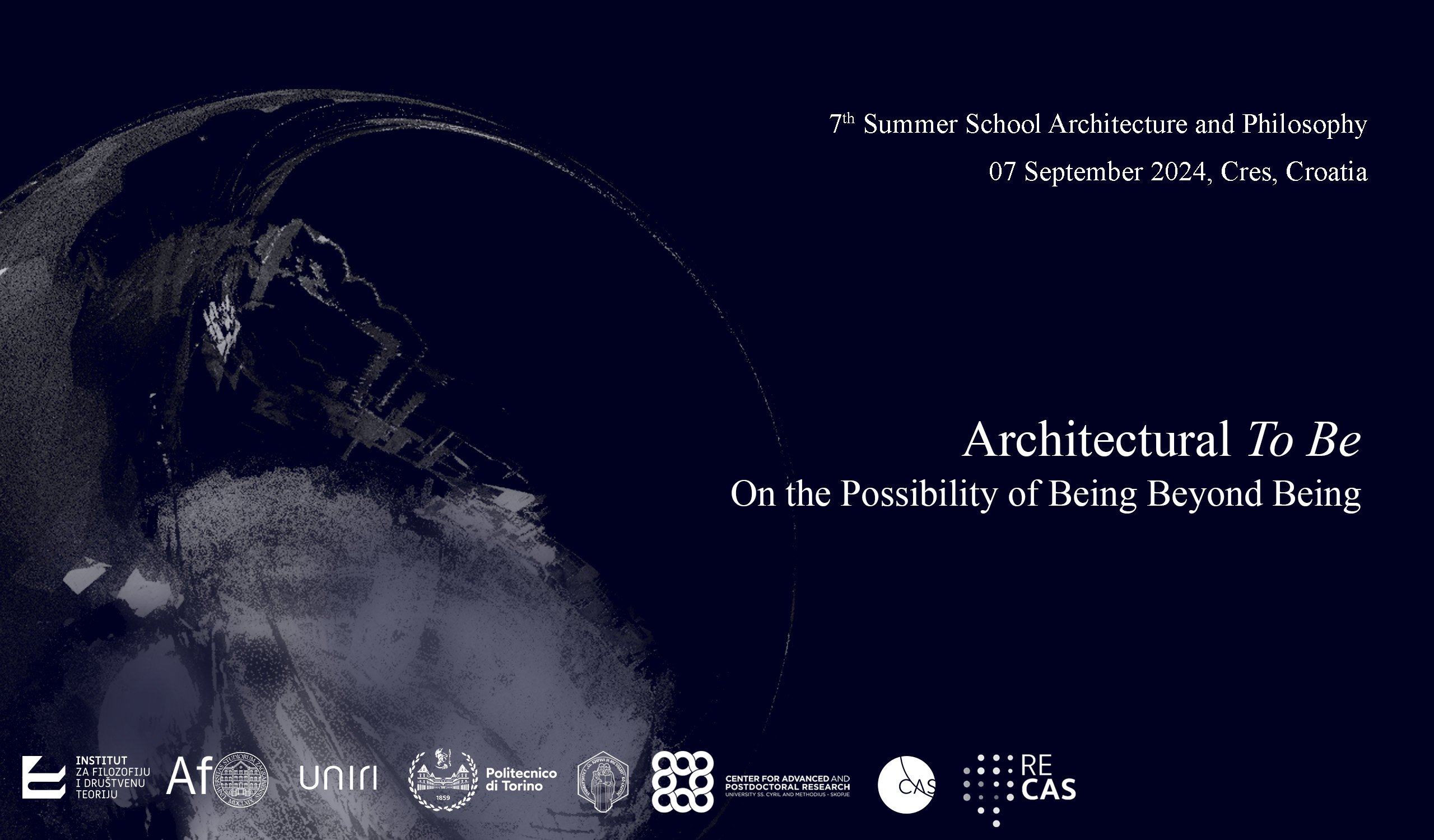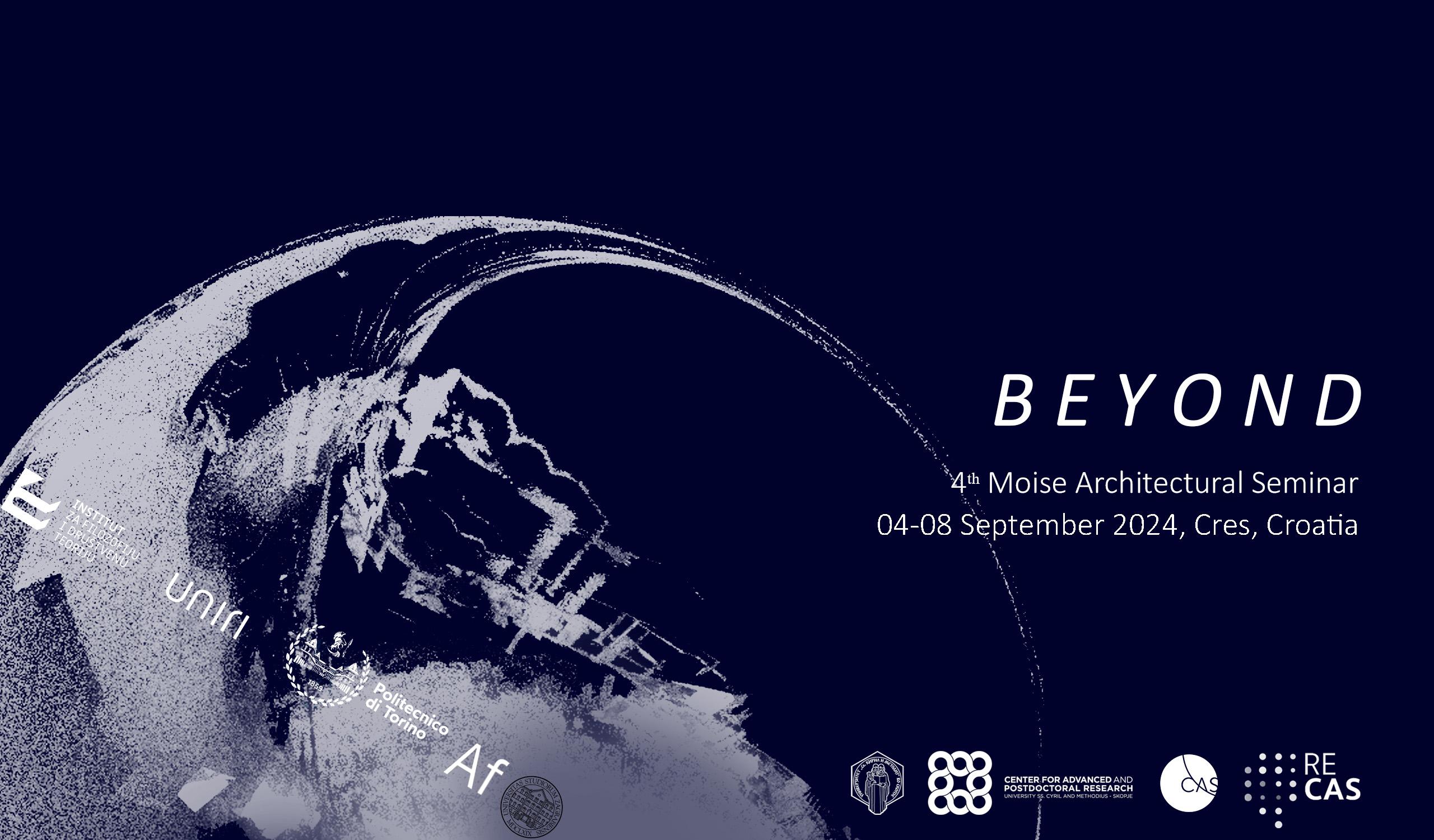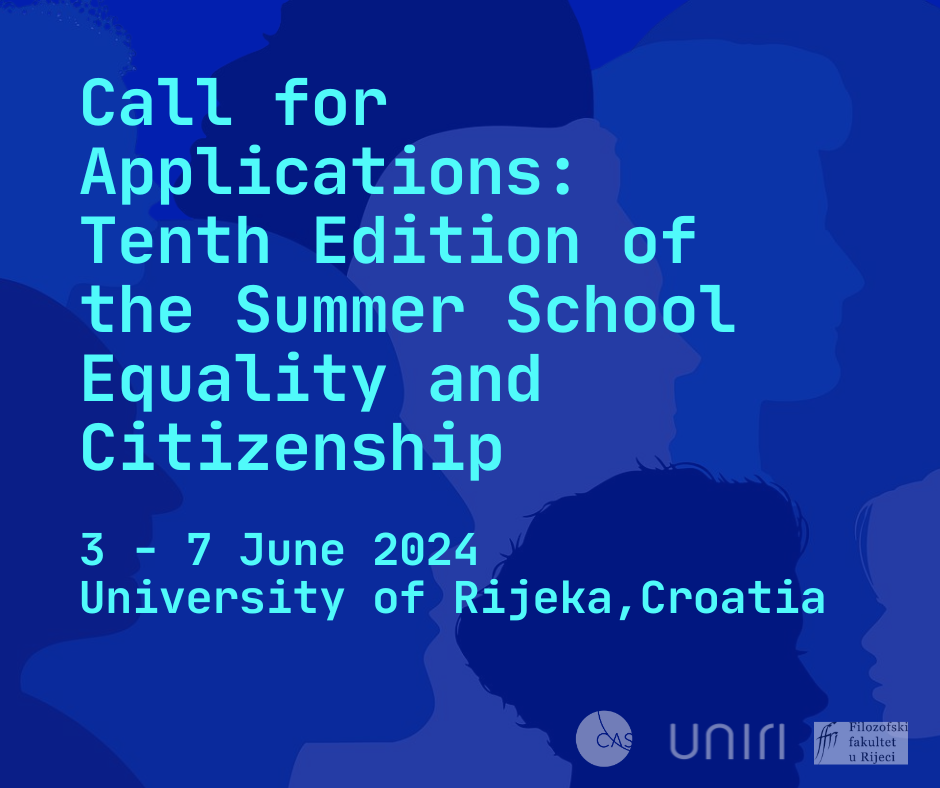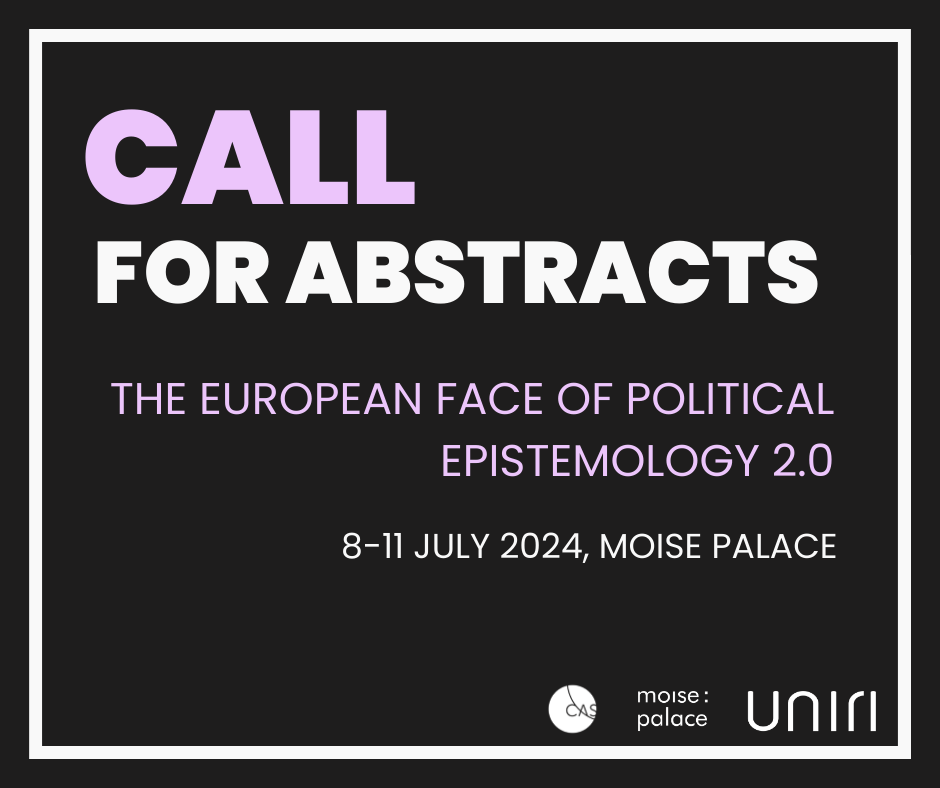12-18 September, 2016, Rijeka (Croatia)
organized by CAS SEE, UNIRI in cooperation with Center for Women’s Studies, University of Rijeka, Institute for Philosophy and Social Theory, University of Belgrade, University Paris 8, Vincennes-St Denis
This summer school should provide space for recasting frameworks of “diversity politics” and “diversity discourses” in Europe. In light of recent events, we would like to challenge the crisis of multiculturalism and core European values of solidarity and human rights. The “failure of multiculturalism” narrative has become all too present in Europe, shifting the rhetoric to cultural anxieties and articulating immigration as a national threat. This discourse has also affected “internal immigration”, making certain groups throughout Europe less visible and more vulnerable: Roma, refugees and internally displaced persons, certain LGBTQ communities. Moreover, ethnicity, nationality, religion and race are being forcefully reshuffled, inviting contemporary forces of nationalism and securitization. Hereby, we are particularly interested to the effects of the ways how European countries ‘manage’ diversity through its policies and practices: from ethnic and racial to socio-economic diversity, but also particularly to citizenship and migration status diversity. It is of crucial interest to map and evidence differences among significantly varying Western European practices (France, UK, Germany etc.), Central European practices (former communist countries with strong opposition to multiculturalism) and South-Eastern European practices in countries where migration is observed as passing-by phenomenon.
The lectures and seminars of this summer school particularly investigate how these three identified regions policies connected to governmentality of diversity are changing after the recent and actual conflicts and migration flows. The summer school will particularly focus on policies and practices that affect marginalized and vulnerable groups in these regions.
The summer school main goal is to highlight the agency of these marginalized groups in order to understand, how they themselves respond to reconfigurations of diversity politics and practices.
THEMES:
- Post-socialist transition and governmentality of diversity
- Transforming racial thinking from a biological issue into “social questions”
- Gender instrumentalisation in the refugee crisis
- Universalism vs. Differentialism: Leading to the same politics?
- EU integration processes and (re)construction of vulnerable groups, with a special focus on Roma
- Refugee crisis and the Western Balkan Route: The shifting signifier of the marginalized
- Is the subaltern silent?: the agency of marginalized groups
- Art and politics of difference
- Freedom of expression and hate speech in today’s diversified Europe
- Troubled memory and feminist politics
KEYNOTE PARTICIPANTS:
- Athena Athanasiou, Panteion University of Social and Political Sciences, Athens
- Ethel Brooks, Rutgers University TBC
- Eric Fassin, University Paris 8, Vincennes-St Denis
- Julija Sardelic, School of Law and Social Justice, University of Liverpool
- Jörg Schulte, Institute of Slavonic Studies, University of Cologne
- Elena Tzelepis, Birkbeck Institute for the Humanities, University of London
- Violetta Zentai, Central European University, Budapest
ELIGIBILITY
- Applicants should be postdoc and post/graduate students (MA or PhD students) and/or younger researchers interested in exploring the issues of migration, Roma and minority studies, gender, cultural studies, political sciences and related areas. However, outstanding BA students are also considered and have the chance to enroll. We also welcome the applications from the civil society activists bringing particular insights to the school’s content.
- Applicants from all countries are eligible to apply, but we particularly welcome those coming from SEE.
APPLICATION
- All applicants should send their CV and one-page motivation letter to cas@cas.uniri.hr before 1st August 2016.
- Paper abstract is optional. If you wish to deliver a presentation, post your abstract in 500 words max. for a presentation not exceeding 15 mins.
- Maximum number of participants: 50
- Maximum number of students delivering presentation: 20 (maximum 4 presentations per afternoon session).
- Participation fee is 100 EUR but it doesn’t cover accommodation expenses.
Participants will receive a certificate of participation describing the activities in which they have participated during the summer school.
INFORMATION
Organizers will facilitate arranging accommodation in the student dormitory of the University of Rijeka for those who want to stay there and we kindly ask participants to emphasize if they opt for this option in their application.
Alternatively, it is possible to book rooms in one of Rijeka’s hostels:
http://www.visitrijeka.eu/Where_To_Stay/Hostels_and_Hostelry
or hotels:
http://www.visitrijeka.eu/Where_To_Stay/Hotels
or private accommodation:
http://www.visitrijeka.eu/Where_To_Stay/Private_Accommodation
It is possible to find useful information about the town at: http://www.visitrijeka.eu/
If any further details are needed, please contact cas@cas.uniri.hr
On CAS SEE Summer School Series
The general aim of the CAS SEE Summer School Series is to gather young post-graduate students, scholars and teaching staff from Europe, focusing on South East European countries, and promote a shared platform for research and trans-disciplinary theoretical reflection on the complex societal issues as migration, culture, politics, gender and consequently of exchanging and questioning existing discourses in the social research. Our idea is to provide students, scholars and teachers with the opportunity to question and democratize these areas by direct participation on equal grounds, and thus to introduce new models of rethinking context-specific phenomena related to posed themes and, vice versa, to enrich theoretical paradigms with context specific phenomena and research.
Program Board of the summer school:
Sanja Bojanic, CAS SEE/CWS, Rijeka; Eric Fassin, University Paris 8; Brigita Miloš, Center for Women Studies, University of Rijeka; Adriana Zaharijevic, Institute for Philosophy and Social Theory, Belgrade; Violetta Zentai, Central European University, Budapest; Petar Bojanic, Institute for Philosophy and Social Theory, Belgrade
Organization Board:
Gazela Pudar Drasko, Institute for Philosophy and Social Theory, Belgrade; Andrea Mešanović, University of Rijeka; Kristina Smiljanovic, University of Rijeka





